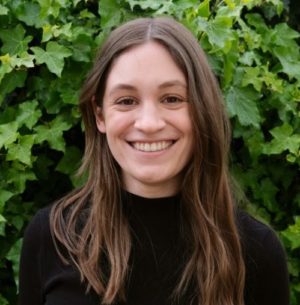
In this month’s newsletter, we would like to introduce PhD student, Shannon Sandford from the College of Humanities, Arts and Social Sciences.
Shannon’s recently submitted thesis, “Drawing Digital: Exploring the Subjects and Spaces of Auto/biographical Webcomics” received outstanding results from the examiners.
We asked Shannon to share her research, highlights and advice for future students.
Tell us about yourself
I am a completing PhD candidate and casual academic in the College of Humanities, Arts and Social Sciences at Flinders University. After graduating with a Bachelor of Arts (Honours) First Class, I quickly enrolled as a HDR student under the supervision of Prof Kate Douglas and Dr Kylie Cardell. While working on my thesis, I have enjoyed contributing to the vibrant, dynamic teaching program and research culture at Flinders by tutoring in first year and upper-level English topics and publishing my research in high quality academic journals. Last year, I was honoured to be awarded CHASS 2021 Best Higher Degree by Research Student Publication for my peer-reviewed article, “‘You Can’t Combat Nothing’: Allie Brosh’s Hyperbole and a Half and Reframing Mental Illness through Webcomics”.
My research is grounded in Life Narrative studies, a field which (very broadly speaking) attempts to unpack and understand the techniques, modes, implications, and consequences that arise from writing about our own lives and those of other people. My thesis is informed by my passion for graphic literature (e.g., comics, webcomics, graphic narratives) and its ability to mobilise powerful stories of marginalisation, protest, and counterculture. I am a keen and voracious reader of Australian comics; in particular, the incredible auto/biographical works being produced by small press publishers which are steadily gaining recognition in cultural and literary spaces.
Since submitting my thesis, I have begun working as a research assistant for academic staff at Flinders University and the University of South Australia. I have also rediscovered my love of reading for pleasure (rather than for study!), op-shopping, spending time with friends/family, and bike riding around my neighbourhood.
What is your research about?
My research draws together the fields of Life Narrative studies, new media studies, and comics studies to consider the implications and effects of digital technologies on visual modes of storytelling. The focus of my PhD is on auto/biographical webcomics: an exploratory and experimental medium that suggests ways that platform affordances and digital audiences contribute to the practice, reception, and circulation of graphic life narrative. My recently examined thesis, Drawing Digital: Exploring the Subjects and Spaces of Auto/biographical Webcomics, argues that webcomics are an urgent and emerging form of self-display that captures the trends and tendencies of contemporary life writing in the digital environment. Webcomics which centre subjects such as illness, trauma, memory, and displacement are particularly significant in my research, as they offer a distinct rhetorical position from which to represent and understand marginal and difficult experiences. Ultimately, the thesis asks: what does it mean to produce and circulate, to read and interpret, webcomics today? What does a generous reading of webcomics entail? What might this reading reveal about which stories are made visible and/or championed in the public sphere?
What has been one of the most enjoyable parts of the journey?
I have especially enjoyed opportunities to present my research at student conferences here at Flinders (the CHASS PA Conference and CHASS-CBGL Spring Conference) as well as at leading national and international conferences in Life Writing (IABA World and IABA Asia-Pacific) and literary studies (ASAL and AAWP). In 2021, I served on the organising committee of the 4th IABA Asia-Pacific conference alongside colleagues from Flinders University, the University of Adelaide, and the University of South Australia and gained invaluable experience behind-the-scenes of the event. I believe it is vitally important to engage with research currently in-progress, and to establish a sense of community and collegiality amongst academics, as our research is only strengthened by collaborating with and learning from others. The skills I developed by organising and presenting at these conferences have helped me to translate my specialised knowledge for diverse contexts and audiences and to understand the broader impact of my work in and beyond academia.
What’s a highlight of your student life at Flinders?
A highlight of my student life at Flinders has been the relationships I have formed with my incredible colleagues and friends in CHASS, particularly, in The Life Narrative Lab (formerly, Flinders Life Narrative Research Group). The Lab is affiliated with Flinders University scholars and the International Auto/Biography Association (IABA) and is dedicated to fostering an encouraging and collaborative environment in which to engage in work across life narrative studies. Its leaders routinely organise guest speakers, writing lock-ins, and conferences aimed at building national and international scholarly connections, promoting interdisciplinary thinking, and testing ideas and/or problems in current works-in-progress. Participating in this active, innovative research culture has not only been enriching and insightful but has helped develop my skills as a researcher by introducing me to new perspectives and ways of thinking in and through life narrative. I am grateful to the academics in this community for engaging with my research, for offering their support throughout my candidature, and for creating opportunities for future learning and collaboration as I move into the next phase of my research career.
What advice would you give to those who are about to undertake a PhD?
The PhD is a difficult road to follow. It can be intellectually challenging, emotionally confronting, and socially isolating. It is important to find ways to show up for yourself, particularly when stress is mounting and deadlines draw near. Think about what sustains you outside of work (exercise, time with friends/family, healthy eating, hobbies) and try to incorporate these into your routine. In essence, make time for yourself. Work/life balance sounds like a cliché, but I wish I had adopted strategies for coping with stress and anxiety earlier in my candidature.

